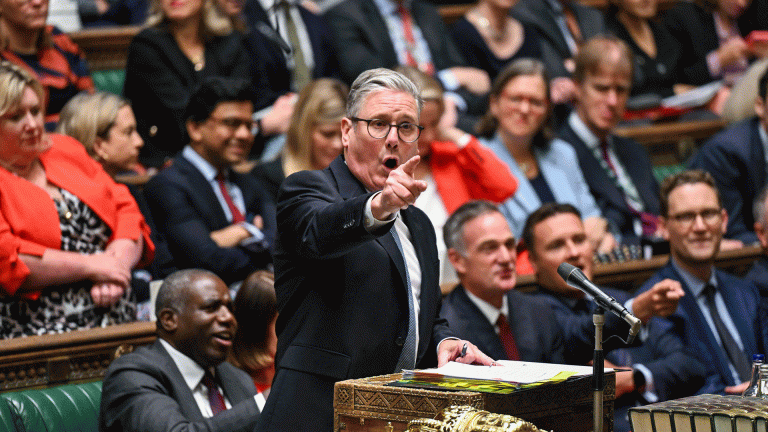It aims to combat the short-termism that, for some, Brexit has come to define. It will prevent a future where we are doomed to an endless cycle of repeating yesterday’s mistakes.
Lord Bird was inspired by a place where forward-thinking, sustainability and wellbeing have already become baked in to policymaking and the hard decisions.
Wales’ own Well-being of Future Generations (Wales) Act 2015, gave future generations commissioner for Wales Sophie Howe the power to scrutinise the decision-making of public bodies to ensure they consider the impact on those who are yet to be born.
In Scotland, too, sustainability and wellbeing have become the key buzz words. The Scottish Government was ahead of the game when it set up the National Performance Framework in 2007, before revamping it in 2018, to measure wellbeing across a range of economic, social and environmental factors. Just last week First Minister Nicola Sturgeon reaffirmed Scotland’s commitment to making collective wellbeing “as fundamental as GDP” in a speech at the Edinburgh’s Wellbeing and Economy Alliance conference.
Next in the House of Lords for a second reading on March 13, the Future Generations Bill will build on the Welsh example. It will create a UK Future Generations Commissioner role with the legal backing to demand public bodies and government departments set wellbeing targets and stand by them. It will give everyone a say through a citizens’ assembly, offering an explicit legal right for individuals to hold those bodies to account.
The legislation will be a body blow to short-termism, ensuring that those who have been left behind in poverty will not be cut adrift by the consequences of the Brexit that many who felt disillusioned and disenfranchised backed.
Advertising helps fund Big Issue’s mission to end poverty
Don’t just take out word for it – leading academics, politicians and progressive thinkers have spoken up for the power of the Future Generations Bill to take us into a brighter future.
Education
“Libraries are absolutely part of the solution to the UK’s social care crisis, but the crisis itself could have been averted if successive governments had simply heeded the demographic data since the 1970s. That’s why I support Lord Bird’s Future Generations Bill.”
Nick Poole (CEO Cilip)
Young People
“Young people are rightly calling out current leaders who are failing to act on issues which will affect their futures such as climate change. Policy-making is invariably short-term and siloed and often focused on fixing things once they’re broken. The intergenerational divide we have in the UK is crying out for a solution which will require politicians to test the impact their policies will have on future generations. Our internationally groundbreaking legislation in Wales, the Well-being of Future Generations (Wales) Act 2015 provides this framework alongside an independent mechanism to hold government to account. Never has there been a greater need for something similar covering UK government”
Advertising helps fund Big Issue’s mission to end poverty
Sophie Howe (Future Generations Commissioner for Wales)
Public services
“Similar aspirations to the Social Value Act, but with a clear focus on future generations. And what can be a more laudable aim than that? Indeed, the Bill’s website’s call to arms is the very powerful slogan: Today for tomorrow, Act Now for Future Generations! A successful private member’s bill, or more accurately, for a bill to become an act, is a very rare thing indeed. There are a number of bear-traps along the way; a lack of consensus across the parties, a reluctance by the governing party to accept the good idea of an opposition member, the objection of a member of what has not become affectionately known as the “awkward squad”, the potential cost or the unintended consequences of the proposed act. A responsible government should support its principles and assist in its unhindered passage to Royal Assent. I, for one, as the author of the Social Value Act, recognise its potential. It has my full endorsement.”
Chris White (director, Institute for Industrial Strategy, King’s College London and architect of the Public Services (Social Value) Act)
Climate
Advertising helps fund Big Issue’s mission to end poverty
“The failure of successive governments to think for the long term has contributed to the unprecedented challenge of climate and environmental breakdown facing current and future generations. A Future Generations Act is crucial to breaking the culture of short-termism that besets politics and policy by compelling governments to consider and address the long-term impacts of their policies.”
Josh Emden (research fellow at IPPR thinktank)
Politics
“As someone who helped to develop this law from its beginning to its end in Welsh government, I have seen what a difference it has made to our public bodies, to Welsh government, and to people’s lives in Wales in terms of long-term decision-making. Will the minister commit his government to bringing in this future generations law for the whole of the UK?”
Political agitator: Anna McMorrin (Cardiff North MP speaking in the House of Commons)
Advertising helps fund Big Issue’s mission to end poverty
Wellbeing
“As an organisation who has worked for over 100 years to improve the wellbeing of the people in the UK and Ireland, the Carnegie UK Trust welcomes the introduction of the bill. There is clear appetite for change, to both protect and improve the wellbeing of people living in the United Kingdom today, and for future generations to come. As well as utilising the learning from the Well-being of Future Generations (Wales) Act 2015, what is most exciting about the UK bill is the potential to build on the evidence not just from Wales, but from other jurisdictions too. Wellbeing is a key driver for a new way of governing for complexity, and we are enthused by the possibilities that the Future Generations Bill might bring.”
Policy Changemaker: Hannah Ormston (policy and development officer at the Carnegie UK Trust)
Democracy
“Democracies find it hard to act for the long term. Short-termism undermines economic and social policy and the government’s response to the climate emergency and emerging technologies. Future generations are, by definition, not present to make the case for their interests to be considered. Electoral cycles push politicians to prioritise short-term returns to sell to the electorate. Voters do not trust politicians to deliver on long-term promises. Vested interests resist change. The Wellbeing of Future Generations Bill promises to change the rules of the game. The Foundation for Democracy and Sustainable Development particularly supports the emphasis on public involvement in the Bill. Our response to long-term challenges needs to be inclusive, creative and democratic.”
Long-term visionary: Prof Graham Smith (chair of the Foundation for Democracy and Sustainable Development thinktank and professor of politics and director at the University of Westminster’s Centre for the Study of Democracy)
Advertising helps fund Big Issue’s mission to end poverty










